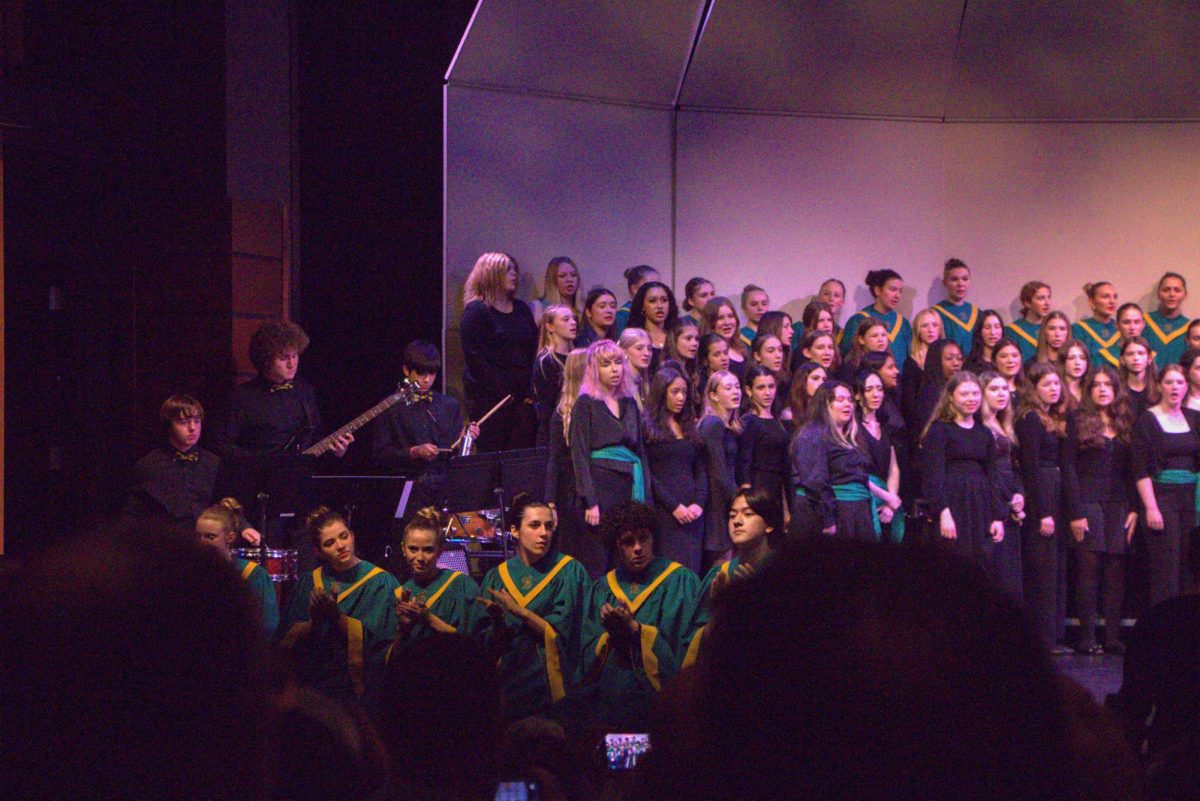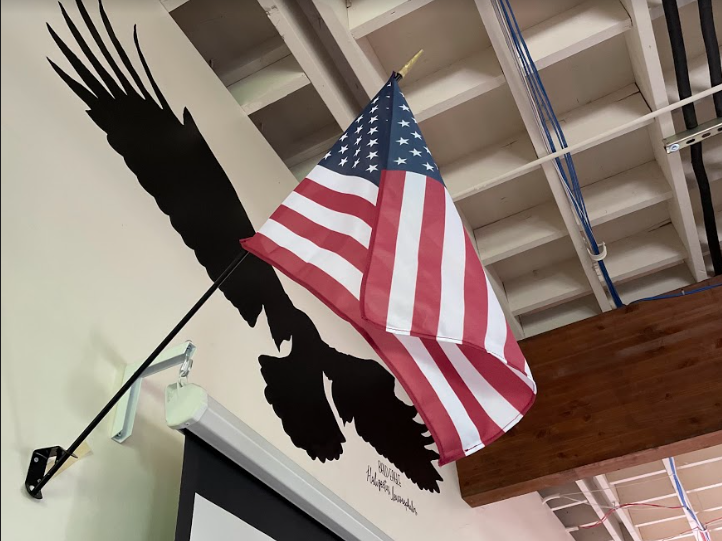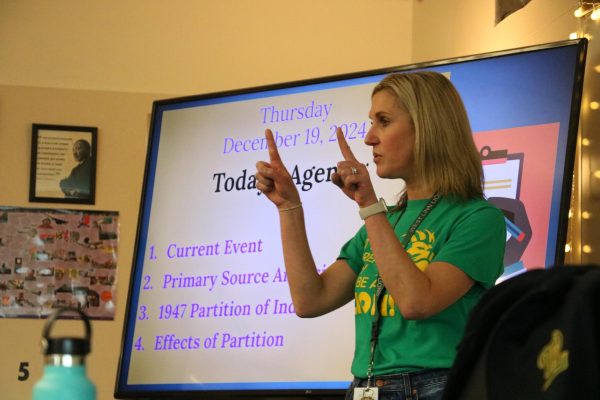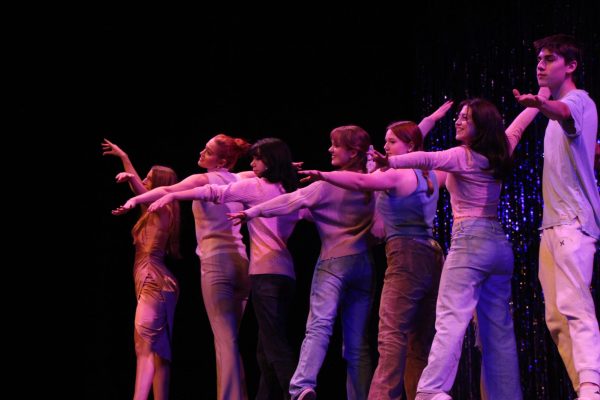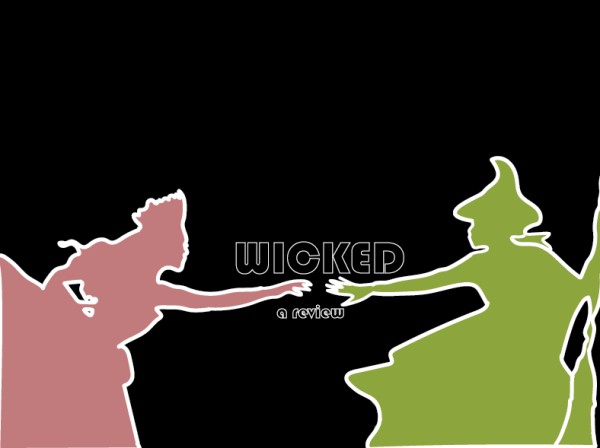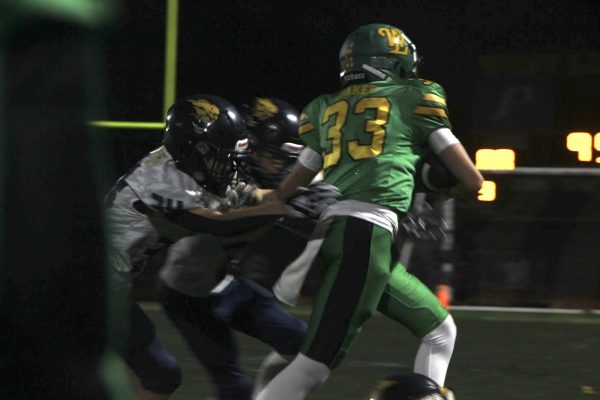To say or to sit?
Two students share their opinions on the new school-wide policy of the pledge becoming a part of their week.
There are flags mounted on the walls of each classroom, allowing students to recite the pledge if they choose to.
For the first time in years, the Pledge of Allegiance is entering students’ weekly routines. Along with the school’s ‘Live Roar’ broadcast, students have the opportunity to recite the pledge every Wednesday in their third period classes. This new change was announced to all students during each grade’s class meetings on Sept. 2, 2022.
Section 1. Oregon Revised Statutes 339.875 in Chapter 137 of the Oregon law states that public schools shall, “(b) Provide students with the opportunity to salute the [U.S.] flag at least once each week of the school year…”
This change sparked a variety of opinions about the pledge’s place among students.
Emma Valerius, sophomore, was elected to be an ASB officer at the end of last year.
“My personal opinions about the pledge, specifically, are not positive,” Valerius said. “So one thing I love about how the school introduced it was that they made it very clear that students didn’t have to participate, and that everyone should be respectful. But not everybody is respectful.”
Not every student participates in the Pledge of Allegiance. Regardless of their reason, the students are able to have the option to choose how to display their symbolic speech. Oregon law includes a subdivision that mentions that students should maintain a respectful silence during the salute if they aren’t reciting the pledge.
“Personally, I don’t participate in the pledge because I think that the words in the pledge are very optimistic,” Valerius said. “It feels like I’m discounting so many people that are constantly hurt through the pledge and through what the pledge stands for. And so I just don’t say it out of respect.”
The pledge holds different meanings for different people. The way the words are interpreted, the reason why people recite the pledge, or why they choose not to, all vary depending on the person.
“To me, [the pledge] means a future goal, like a place that we want to get to and that we’re working towards in terms of social justice,” Valerius said.
Luke Jacob, sophomore, chooses to stand up for the pledge in commemoration of his family members that served in the military.
“I think it always should have been a weekly routine,” Jacob said. “It should have started like that. I don’t know why they stopped it.”
Respect is shown to be a big aspect that comes to play in both perspectives. Being respectful can be shown in multiple ways: remaining silent while others say the pledge or using proper etiquette while reciting the pledge.
“It’s respectful to be respectful to the millions of people who died so we could be here. Obviously, yes, there were some bad parts in [U.S. history], but imagine living somewhere else, like other countries can be 100 times worse,” Jacob said.
“My entire family was in the military besides my mom and dad, and my great-grandfather died, and his entire family died in war,” Jacob said. “I like to show respect for that because they sacrificed everything.”
Expectations about the behavior of students during the pledge play a role in many students’ opinions.
“Take your hat off, [place your] hand on your heart, stand up, and yeah I think that’s it,” Jacob said.
“People that don’t say the pledge, they’re not trying to like, undermine their country,” Valerius said. “They’re trying to say, ‘Hey this isn’t accurate, this isn’t true, and it’s not fair. It’s not inclusive, and we need to work to a place where it is. I’m really glad that we have these perspectives that can recognize where a country needs to improve because I think that’s what patriotism should be.”
Your donation will support the student journalists of West Linn High School. Your contribution will allow us to continue to produce quality content by purchasing equipment, software, and continuing to host our website on School Newspapers Online (SNO).

Rachel Han, junior, is the Print Editor-in-Chief for wlhsNOW. She has found a passion in writing about opinion pieces and designing graphics. Aside from...


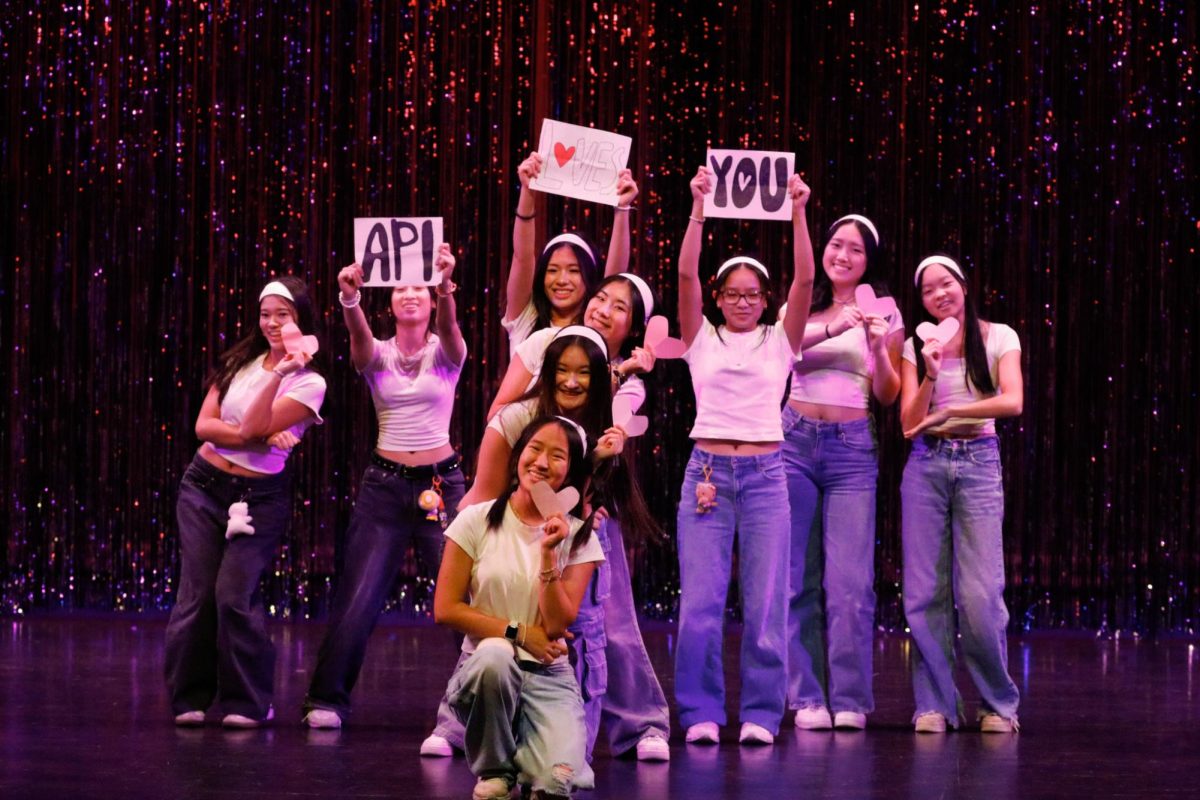
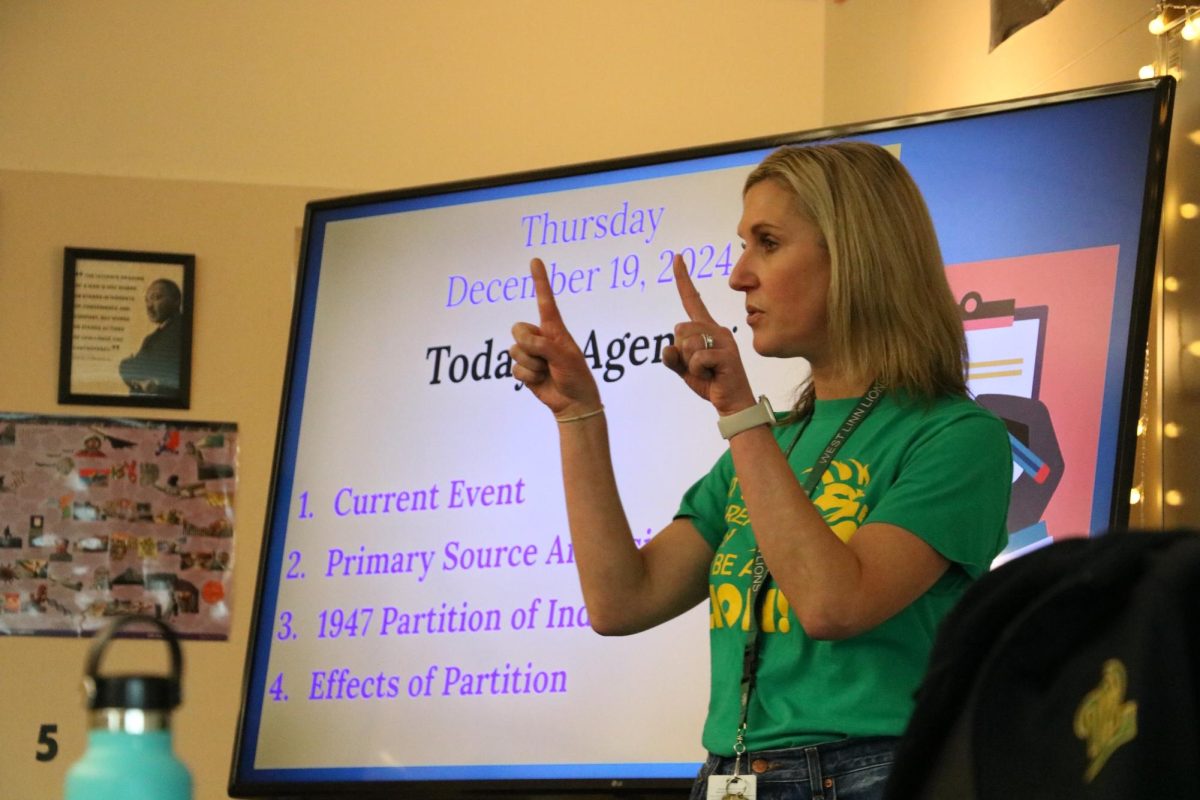



















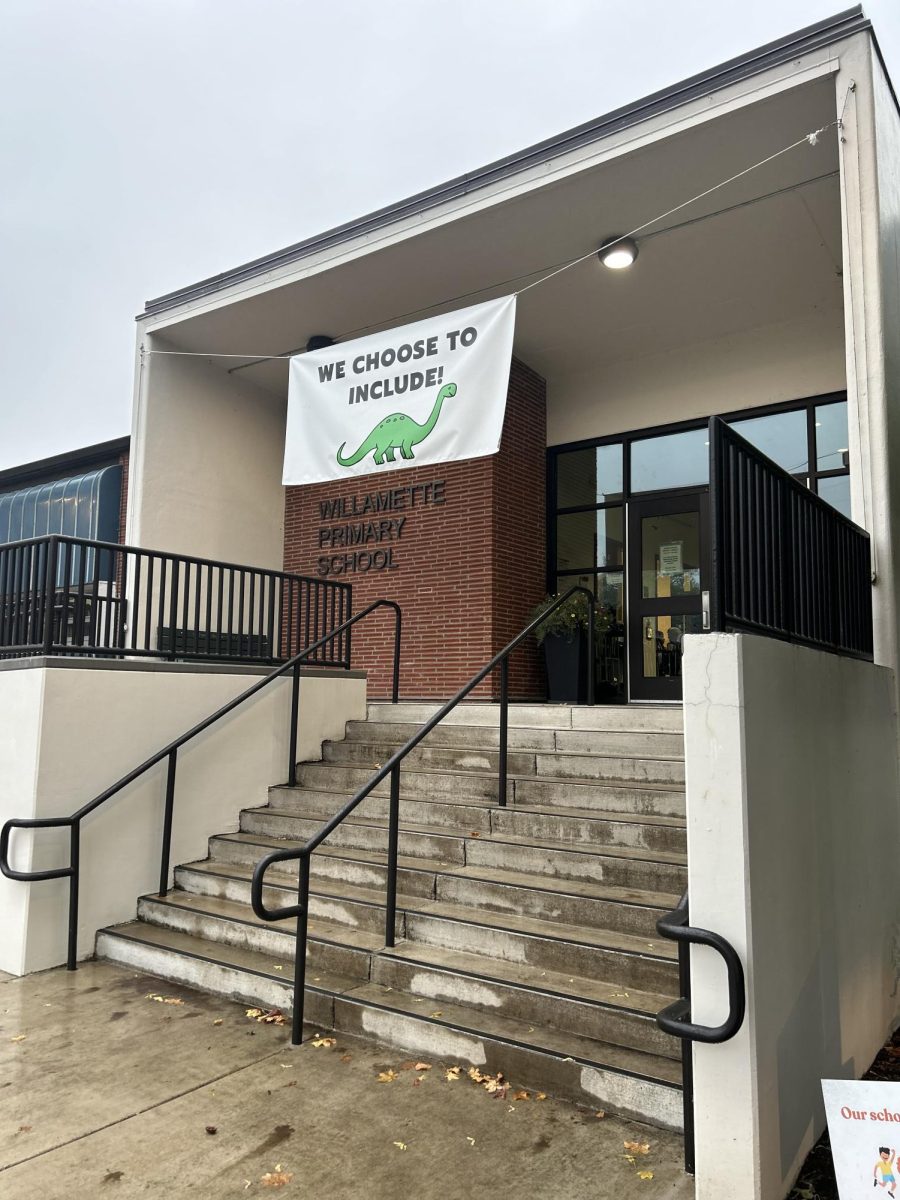
























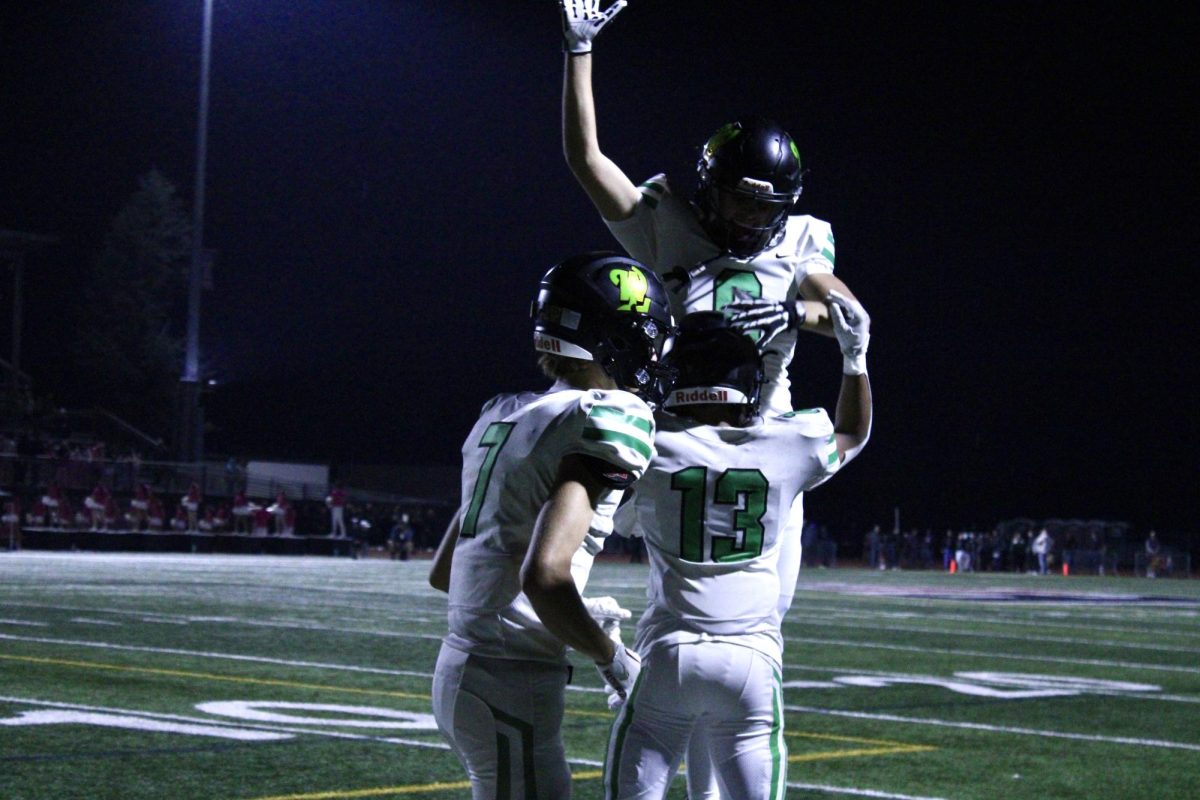




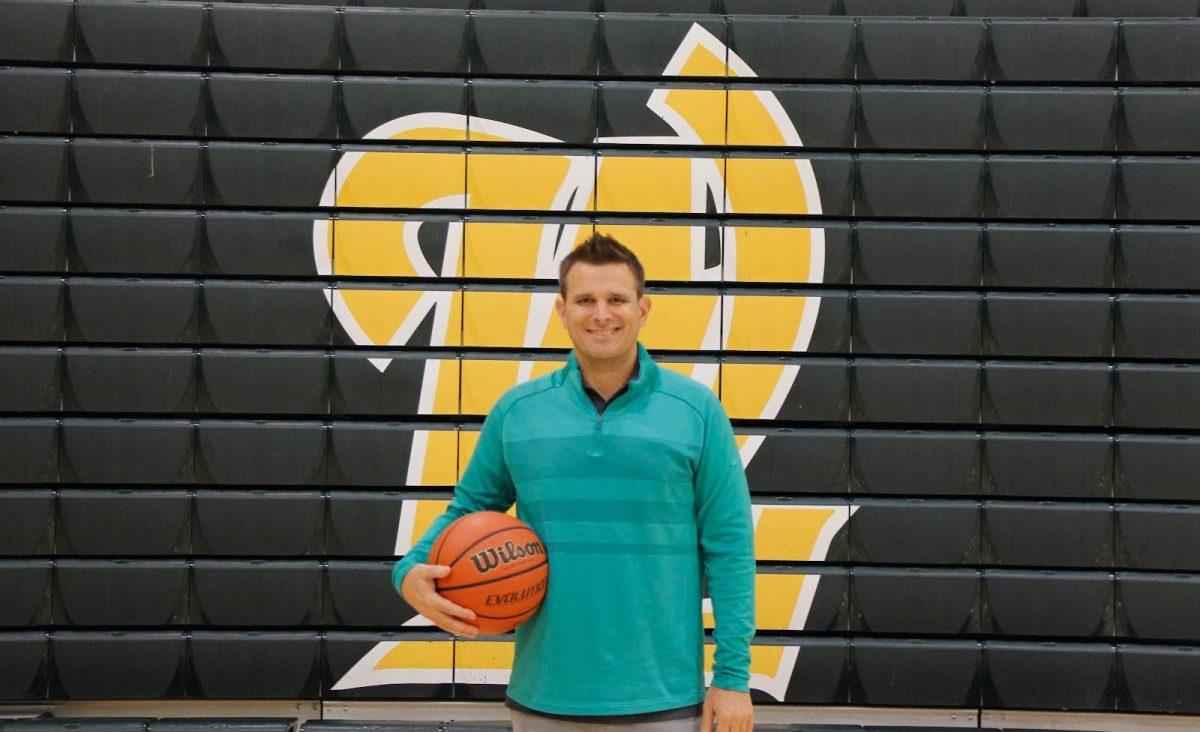







![At the bottom of the third inning, the Lions are still scoreless. Rowe stands at home plate, preparing to bat, while Vandenbrink stands off to the side as the next batter up. Despite having the bases loaded, the team was unable to score any runs. “It’s just the beginning of the season. We’re just going to be playing out best by June, [and] that’s where champions are,” Rowe said.](https://wlhsnow.com/wp-content/uploads/2024/03/IMG_3077-1200x900.jpg)



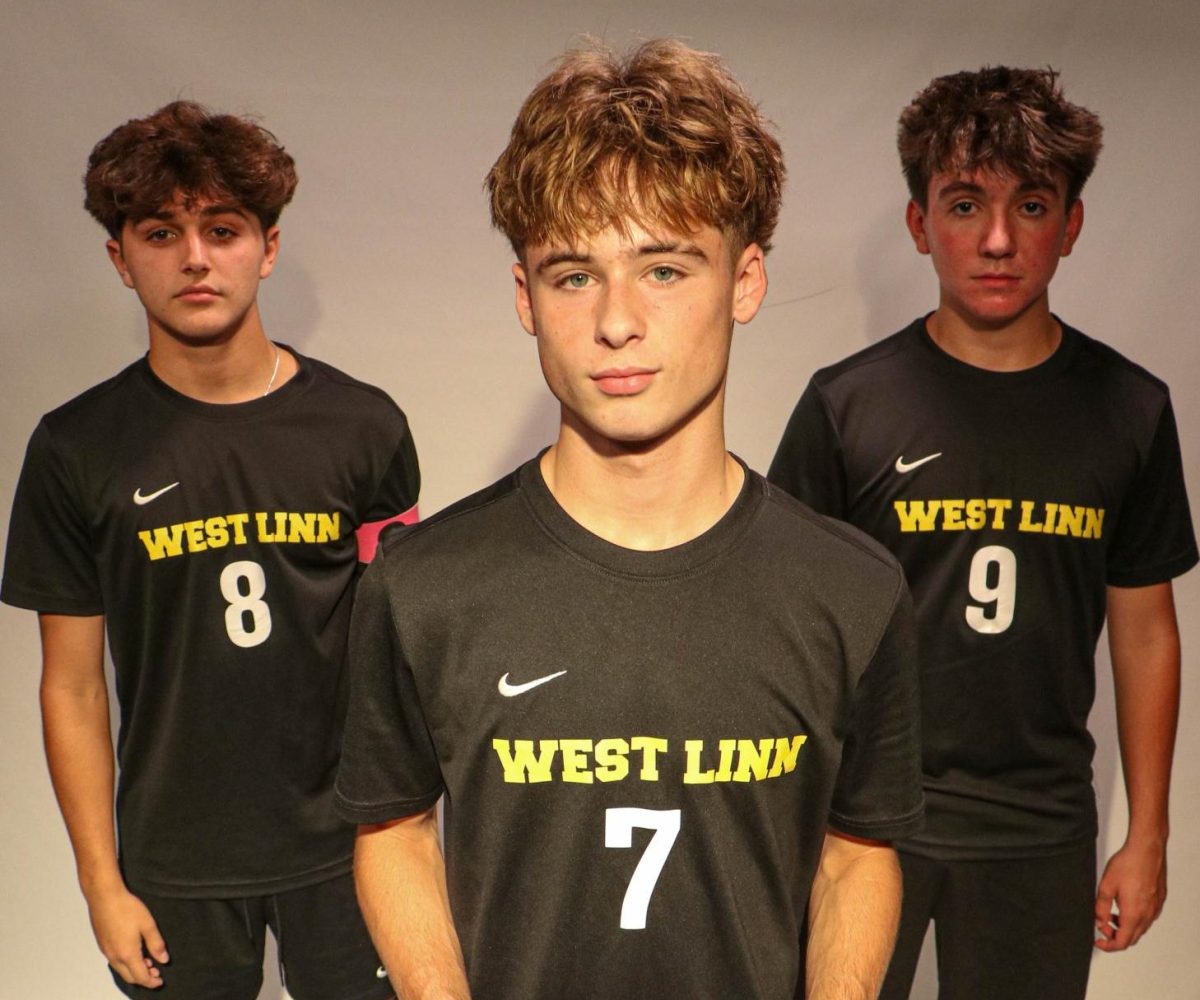



































![All smiles. The group poses for a photo with last year’s book, “This is Our House,” along with their award for third Best in Show. Meikle, who was an Editor-in-Chief for the yearbook last year as well, holds both and stands at the center of the group. “That was an amazing feeling, going and grabbing the third place award,” Meikle said. “All of it paid off. I cried so much over that book, being able to receive [the award] was one of the highlights of my high school career, it was like the coolest thing ever.”](https://wlhsnow.com/wp-content/uploads/2024/11/8bookpose_philly-1200x800.jpg)
